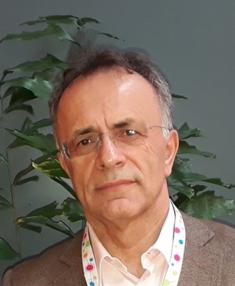Introduction
. On 25 January, UNECE held its second IPO policy dialogue on science-business linkages, discussing how EESC economies can build systems of dynamic interaction that can create the momentum needed to boost experimentation with different ideas around technology and research results from the region and beyond. A recording of the meeting is available here.
As emerged out of the discussion, while the science business linkages in the region remain loose, governments and stakeholders are eager to foster more science-industry cooperation. From funding incentives for collaborative R&D projects to training and skill development, policymakers should consider a combination of approaches to encourage science-business linkages and maximize the return on investment into R&D activities.
Central points from the discussion
While governments in the Eastern Europe and South Caucasus (EESC) region continue to invest in public research and development (R&D), the transformative effect of these efforts on innovation in the private sector has been disproportionally small. One of the instruments to maximise the impact of R&D on innovation, is building Science Business Linkages (SBLs). SBLs form within a national innovation system as public research institutions and universities collaborate with private sector companies or enter the market to leverage the commercial potential of their work. This multi-sectoral collaboration and pooling of resources combines the scientific expertise of research institutions and the entrepreneurial capacity of the private sector to foster innovation-driven growth.
Yet, SBLs in the EESC region are still at an initial stage of development. This leaves a significant underexploited potential for commercialisation of research and new technology development in most EESC countries. Government agencies and stakeholders increasingly recognise this potential and adopt strategies for closing the gap between science and industry.
To support regional policymakers in their efforts, the Second IPO Policy Dialogue invited three leading experts to share their research and experiences in SBLs. Ms. Eva Baltar from the European Commission's Directorate General Joint Research Centre (DG JRC), an engaged partner in the IPO, shared the recent findings on technology transfer potential and challenges within the region. The second speaker, Mr. Kjell-Håkan Närfelt, from Sweden’s innovation agency, Vinnova, discussed the lessons learned from the Swedish experience of successfully building strong SBLs. The third expert, Professor Slavo Radosevic from University College London, a world leading research institution, discussed the applicability of SBL models reflecting on his experience researching the topic within the region. The three presentations were followed by an open discussion, where regional focal points and key stakeholders could share their country’s unique experiences and challenges.
Despite strong awareness, existing instruments and structures to enable and foster SBLs, these are fragmented and underdeveloped. There are systemic differences in the modus operandi and culture in public research institutions or universities, with lacking entrepreneurial skills and incentives; and the private sector, often reluctant to outsource their R&D to universities or to invest in R&D in the first place.
To maximise the impact of investments into research, ensuring they have a catalytic effect on innovation activity, public policy needs to enable and encourage interactions and collaboration between business, research, academia, and other relevant innovation stakeholders more systematically. Given country-level differences of firm and university capacity, R&D system specificities, and quality of other links in innovation ecosystems, government stakeholders should tailor their approach to the context of their constituency.
The meeting outcomes will feed into an analytical chapter on policies to support SBLs of the Interim IPO (2022). This IPO will offer recommendations for policy reform in the sub-region, UNECE normative support and capacity-building activities in the countries. It is set to be published at the end of 2022.
Speaker Biographies
- Ms. Eva Baltar
-

Policy Officer, Intellectual Property and Technology Transfer at the Directorate General Joint Research Centre (DG JRC), European Commission (EC)
In her role as a policy officer, Ms. Baltar focuses on technology commercialisation, innovation ecosystem analyses and management of implementation programmes to support technology transfer capacities. She has 17 years of international experience in this domain.
Ms. Baltar has previously worked at technology transfer offices at the University of Oxford, the University of Santiago de Compostela and the Spanish National Research Council, where she managed and delivered technology transfer consultancy and training programmes worldwide, was an investment analyst at the university’s venture capital society and managed the commercialisation of technologies through the creation of spin-offs.
Find out more about Ms. Eva Baltar and her work: https://knowledge4policy.ec.europa.eu/technology-transfer/our-team_en
- Mr. Kjell-Håkan Närfelt
-

Chief Strategy Advisor, Vinnova, Sweden
Mr. Närfelt has been working with technology driven business development and R&D for more than 20 years in different management positions. He has served as a board member and advisor to several R&D based start-ups during his time as an investment director in a corporate venture and as partner in a private seed investment company. He has also served as an international advisor and board member in different governmental initiatives, e.g. as a member of the programme board for commercialization of academic research in Norway, as a member of the international advisory committee for TISTR – a national science, technology and innovation institute in Thailand, and a member and vice-chair of EU’s expert advisory group on Innovation in SMEs.
He is currently involved in the strategic development of a new area at Vinnova – Eco-systems for innovative companies
Mr. Närfelt has a research background in computer science which resulted in an academic spin-off that encouraged him to leave academia and to exploit the research results in a commercial context.
Find out more about Mr. Kjell-Håkan Närfelt: https://2018.worldincubationsummit.com/speaker/kjell-hakan-narfelt/
Learn more about Vinnova: https://www.vinnova.se/en/
- Prof. Slavo Radosevic
-

Professor of Industry and Innovation Studies, University College London (UCL), School of Slavonic and Eastern European Studies (SSEES)
Prof. Radosevic’ research is in economics of technological change and innovation studies with special emphasis on countries of central and Eastern Europe. He conducts research from neo-Schumpeterian perspective in particular exploring issues of growth and structural change through innovation systems, entrepreneurship, international business, and innovation policy perspectives.
Prof. Radosevic has supported UNECE on several workstreams in science-business linkages, most recently as the author of an elective chapter in the Innovation for Sustainable of Georgia and Moldova.
Speaker’s website: https://slavoradosevic.com/
Speaker presentations
Ms. Eva Baltar
Ms. Baltar presented the findings of the European Commission's Diagnostic and Benchmarking Studies on Technology Transfer in EU neighbouring countries. With the ultimate objective of informing policy makers in technology transfer (TT) throughout the region, the study aims to identify gaps in TT ecosystems and propose policy measures to bridge these. The common challenged limiting TT in the region included:
- Lack of Intellectual property policies and legislation to promote TT
- Low RD budget and lack of financial instruments and incentives for commercialisation
- Young TT infrastructure with not enough resources – technology transfer offices remain understaffed and underfunded
- Lack of academic entrepreneurship
- Weak linkages between academia and industry
Policymakers should tackle these challenges on both the macro and the micro-level through a set of policy measures. On the macro level, legislative reform and enforcement of intellectual property rights would allow for academic spin-offs and equity ownership by researchers. Promoting coordination between relevant ministries within the government and acknowledging the role of intergovernmental committees would, in turn, enable regional policymakers to adopt a structured approach to TT promotion. Finally, proof of concept funding for early-stage projects and late-stage financial instruments to support scale-ups of more established initiatives would support entrepreneurs fostering innovation.
On the micro level, increasing the number of trained TT managers would enhance capacity building efforts. Increased funding for TT officers and incentives for researchers (including rewards, revenue sharing, and inclusion of TT work in academic success metrics) would further enhance innovation capacities. Tax reliefs and innovation vouchers could further incentivise the industry to cooperate with scientists and researchers. Finally, countries should tap into the resources of their diasporas to support TT and internationalisation.
Watch her presentation here:
Presentation slides available here.
Mr. Kjell-Håkan Närfelt
Mr. Kjell Hakan Närfelt, Chief Strategy Advisor at the Swedish Innovation Agency Vinnova, provided insights to Sweden’s efforts in identifying challenges and strengthening interactions within the research and private sector as well as lessons learnt in the process. He emphasised, that, to bridge the gap between commercial and academic sectors, SBLs need to be developed at an early stage of the research process, incentivising researchers to integrate the needs and challenges of industry into their research agenda from the onset.
To achieve this, public policy in Sweden supported four strategic approaches:
- Supporting the creation of new market-inspired research results. For example, in the so-called Excellence Centres, businesses were encouraged to set research agendas for academics working in collaboration with scientists to implement these agendas. The Swedish Government, universities, and industry each funded 1/3 of the operation costs. Another example of institutions to promote market-inspired research saw researchers vetting their agendas with industry players. The final example of instruments to foster SBLs, The Strategic Innovation Programme, brings researchers and industry players together to solve Sweden’s strategic challenges.
- Support the creation of bridgeheads, or strong positions from which future progress can be made, on market for R&D based innovation. For example, the incubator programme in Sweden provides young start-ups with the necessary funding to set up bridgeheads on the market.
- Stimulating the creation of networks between industry, finance, academia, and public organisations through regular dialogues and forums.
- Supporting the adaption of R&D results for commercial exploitation. Structurally, Sweden introduced innovation offices in universities to function as early-stage incubators helping students commercialise their ideas together with entrepreneurs. In the area of infrastructure, Vinnova provided innovation infrastructure enabling entrepreneurs to scale their businesses. Finally, Vinnova established funding mechanisms for start-ups and entrepreneurs.
As Sweden’s example illustrates, there is no silver bullet to address the lack of SBLs in the region. Instead, governments should adopt a systemic approach by building trusted networks and relationships between organisations, involving the tacit knowledge and intellectual assets of researchers, and developing entrepreneurial skills amongst researchers.
Watch his presentation here:
Presentation slides available here.
Professor Slavo Radosevic
Professor Slavo Radosevic spoke on the topic of science-business linkages and their models in the context of transition economies.
Mr. Slavo Radosevic, Professor of industry and Innovation Studies at University College London, elaborated on theoretical approaches to SBL in the EESC sub-region.
He explained three competing theoretical models of SBL that help policymakers better understand how SBL form and operate:
- Triple Helix: assumes that research and academic organizations should form direct links with industry. More generally, the Tripe Helix model of innovation describes the links and interactions between academia, industry, and government to foster economic development.
- New Economics of Science calls for a division of labor between the industry and academia acknowledging the fundamental differences between the two sectors
- A context-specific perspective rejects any generalizations and one-size-fits-all models of SBLs calling for a more complex, context-dependent perspective
Ultimately, it is the third model that may be the most applicable in the emerging economies. It is thus crucial to base the choice of SBL strategies on the capacities of firms and research institutions. Within the UNECE region, research institutions have a lower capacity to respond to industry needs and pursue commercialisation. Thus, enhancing the absorptive capacity of industry firms, namely the potential to identify and external knowledge and technology and apply it to commercial ends, and building capacity through education, training, joint curricula, and certification services are crucial for effectively leveraging research potential towards innovation-led growth.
Watch his presentation here:
Presentation slides available here.
Stakeholder discussion highlights
During the discussion portion of the event, the floor was opened to the attending stakeholders from the EESC member states. The discussion, moderated by Professor Slavo Radosevic, has focused on a set of open-ended questions tacking a variety of themes form instruments to support science-business linkages to changing the attitudes of universities towards the business sector.
Following the expert presentations, IPO national focal points presented the latest developments and current challenges in SBL in their countries, responding to targeted questions on current public support efforts.
Several prominent themes have emerged out of the discussion. These included:
- The importance of the post-Soviet legacy on SBLs and the culture of industry-science industry separation;
- Adjusting incentives for academics and universities from attaining a high number of academic publications to fostering entrepreneurship and commercialisation;
- Lack of statistics on SBLs and technology-transfer due to the informal nature of such ties;
- The importance of developing entrepreneurship skills in researchers; increasing awareness of intellectual property laws.
While EESC countries operate under different circumstances, the presence of several common challenges highlights the importance of future regional cooperation.

